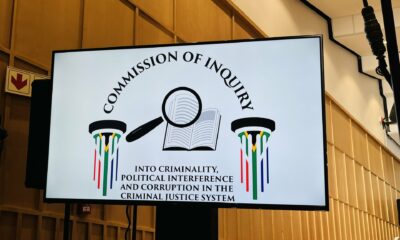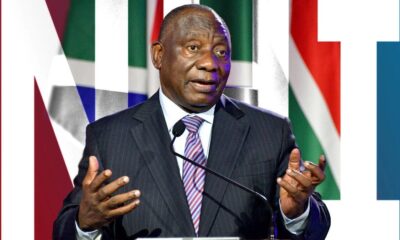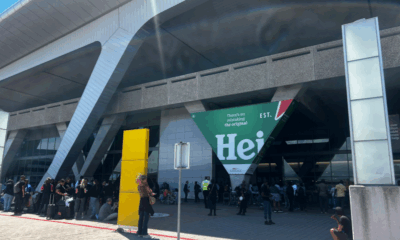News
Only Six Superior Courts Hit SA’s Reserved Judgment Target as Backlogs Deepen

South Africa’s courts are once again under the microscope, and the latest annual judicial report paints a picture that many in the legal fraternity have expected but hoped would change. Reserved judgments, those critical decisions held back for further consideration, remain an area where the judiciary continues to fall short.
Chief Justice Mandisa Maya released the latest findings for the 2023/2024 and 2024/2025 financial years, offering a candid snapshot of how the country’s courts are coping under mounting pressure. And while there is some progress, the overall message is clear: the system is still struggling to deliver justice within a reasonable time.
What The Report Shows
Out of South Africa’s 26 superior courts, only six managed to meet the key target of delivering at least 70 percent of their reserved judgments within three months. This benchmark is considered essential for avoiding bottlenecks and ensuring litigants are not left in limbo for months or even years.
The most startling figure comes from the Constitutional Court, which recorded the lowest success rate. Only 13 percent of its reserved judgments were delivered within the expected timeframe. While this is a small improvement from last year’s eight percent, it remains far from acceptable.
Chief Justice Maya explained that the apex court’s numbers reflect the weight and complexity of the cases before it. Matters brought to the Constitutional Court often involve high-profile disputes, constitutional challenges, and issues of national importance that demand extensive analysis and scrutiny.
Why It Matters For Ordinary South Africans
Delayed judgments do not simply inconvenience lawyers. They hold up divorces, business disputes, labour battles, and appeals that determine people’s futures. In communities already battling slow service delivery, power cuts, and rising costs of living, judiciary delays can deepen frustration and weaken trust in state institutions.
Legal analysts say the growing backlog risks eroding public confidence in the justice system. Social media reactions echoed this sentiment, with many users questioning why the country’s highest court continues to lag behind. Others pointed out that under-resourced courts, heavy caseloads, and systemic inefficiencies have created a perfect storm.
A System Under Pressure
While some courts performed well, the national picture shows a judiciary stretched thin. South Africa’s legal landscape is still dealing with post-pandemic backlogs, staffing shortages, and an ever-increasing volume of complex cases.
Yet Chief Justice Maya remains optimistic. Her reports highlight improvements across several areas of the judiciary, showing that targeted interventions can work. The hope now is that similar energy can be directed toward addressing the delays around reserved judgments.
The Road Ahead
For many South Africans, timely justice is not a luxury. It is a fundamental part of the constitutional promise. The latest judicial report may not be perfect, but it is honest and necessary. It forces a difficult conversation about accountability and reminds the country that justice delayed is indeed justice denied.
The challenge now is whether the judiciary can turn these findings into meaningful reforms that restore public faith and deliver justice at the pace the Constitution demands.
{Source:EWN}
Follow Joburg ETC on Facebook, Twitter , TikTok and Instagram
For more News in Johannesburg, visit joburgetc.com



























